Materialists Review 2025: Choosing Love the Wrong Way ’Round
- Tavia Millward
- Jul 28
- 6 min read
In a world obsessed with boxes: shoe boxes, ring boxes, and dating profile checkboxes. I thought: When did love become a spreadsheet?

I pressed record. Not because I intended to write a review, but because I wanted to feel honestly. There’s something raw and revealing in speaking while watching a film for the first time. No polish. No structured thoughts. Just me and the screen. Materialists was meant to be just another rom-com. And yet, there I was… confessing into my mic, as if it were therapy.
What started as a story about matchmaking and money ended with a whisper: What if love doesn’t tick your boxes, but still feels like coming home?
Plot, But It’s Not Really About the Plot
Lucy Mason (Dakota Johnson) is a successful matchmaker in New York, working for the high-end agency Adore. She organises love like a financial portfolio: investment, return, minimal risk. She scoffs at emotional mess. Yet her own heart is a checklist of non‑negotiables: wealth, status, the whole package. Until she meets two men:
Harry Castillo (Pedro Pascal) – A wealthy financier, polished, perfect, “Unicorn-level”, as they'd say in Lucy's industry
John (Chris Evans) – Lucy’s ex, a struggling actor, waiter by day, and less impressive on paper but more alive in reality
She dates Harry because he fits. But John? He rattles something inside her; something that feels real.

Characters I Saw in A Mirror
Lucy is a woman who can create love stories, but is willing to die alone. She markets love like a transaction, yet the moment the checklist gets in the way, she crumbles. Dakota Johnson nails that conflict: ambitious yet vulnerable, glamorous but cracked.
Harry is everything society says is ideal: rich, tall, accomplished. And yet, it’s not his wealth that matters; it’s how he looks at Lucy. He makes her feel seen. Eloquent, sincere, emotionally capable… he represents a compelling alternative.
John, on the other hand, is messy, working as a catering waiter and struggling theatre actor, and is not exactly wealthy. But his flaws are cracks of light. Their shared history, the passion they never quite released, makes their chemistry grow, slowly but surely.

Choosing Outside the Box
Materialists expose the way modern dating has become a transaction. Credentials over connection. Bios over bodies. Swiping based on "fit" instead of feeling. We’re taught to choose partners who match our lifestyle, our income bracket, and our goals.
But what if the person who ignites you doesn’t come with the lifestyle you dreamed of?
Lucy’s dilemma is real. I’ve been Lucy. Hell, most of us have. We've said no to people because they didn’t “make sense”. We’ve chased the partner who looked right on paper, then sat in a relationship that felt dead inside.
What this film asks isn’t revolutionary. It’s ancient, actually. Echoed in the film’s cave-people prologue and closing: people didn’t fall in love because their partner met certain criteria. They chose each other before the world told them what love should look like. That’s what this film is trying to bring us back to—something raw. Unpackaged. Unboxed.
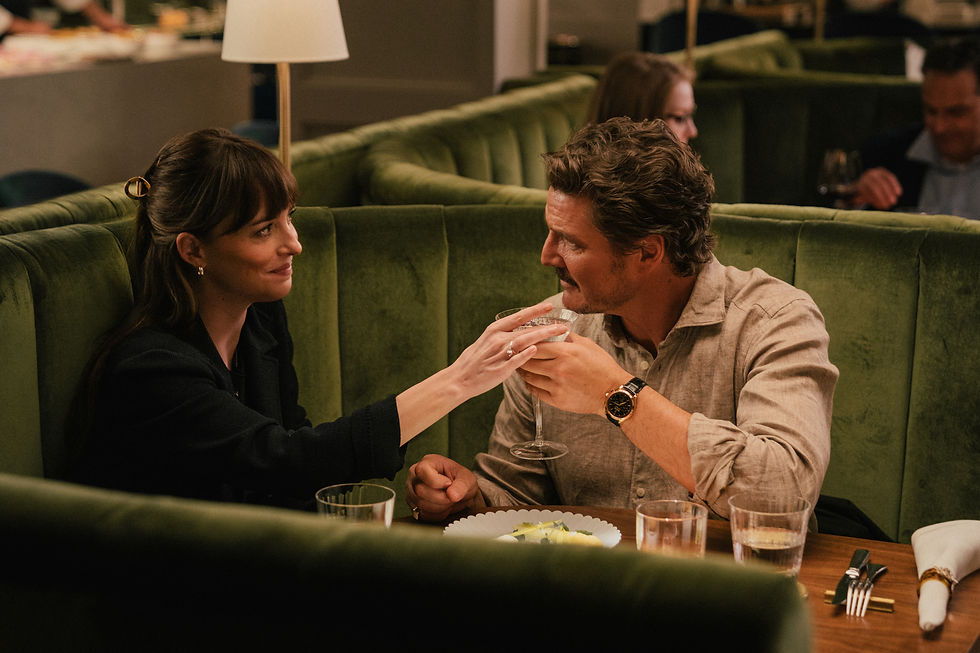
Moments That Forced Me to Feel
Once, Lucy tells Harry, “I'm probably not the kind of person you want to date...because the next person I date, I want to marry.” He asks charmingly, "So, what kind of a person does a matchmaker want to marry?" She brazenly says someone rich - mind-numbingly rich. That’s the moment the screen blurred for me. Her declarations crash against his sincerity.
The breakup—when Lucy and Harry decide it’s not love but a partnership of convenience—is calm, painful, and mutual. It’s a rare cinematic moment: two adults choosing truth over convenience.
John comforts Lucy not because he fits her image, but because he knows her wounds. It’s unscripted, raw. When he walks away quietly, heartbroken, I realised their conflict wasn’t about boxes—it was about what happens when you love someone who seems destined to leave.

The Material Things
There’s a moment where Lucy says, “I’m not a good person,” and John quietly disagrees because he sees her as someone he wants to grow old with. She knows she let the list, the image, and the rules dictate her heart. And she’s not alone in that.
The film’s title, Materialists, is almost ironic. It’s not really about wealth; it’s about how we've made everything transactional. Even intimacy. Even marriage. But in the final act, when Lucy throws away her boxes and chooses John not because he’s “enough,” but because she loves him anyway, the film lets us exhale.
This wasn’t a redemption arc. It was a reminder: boxes are for storage, not for people.
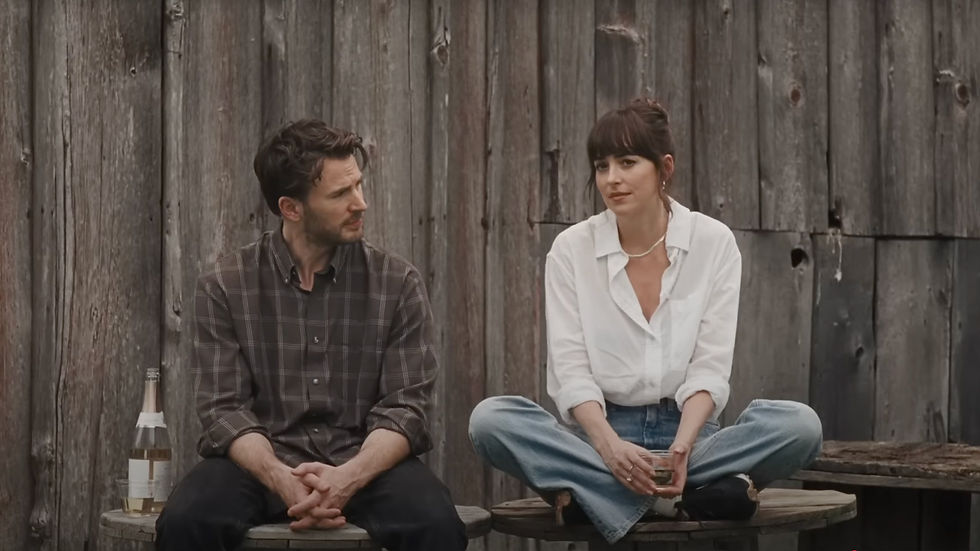
Final Act: Love Without the Boxes
In the end, there’s no grand wedding at the Plaza. No viral TikTok proposal. Lucy and John marry quietly. No diamonds, no Forbes‑listed groom. Just two people choosing one another: chaotic, unfiltered, timeless.
This is Materialists most radical move: it isn’t pointing out what’s wrong with materialism. It’s showing us what’s brighter about love that grows, unboxed.
And as I stopped recording, I realised I’d been comparing my love life to a CV—agreeable, safe, well-presented. But the quiet beauty happens when that CV is abandoned, and you pick someone because… they make you feel something you didn’t know you needed.

A Question for Us All
Are you choosing love based on what fits or what feels?
I’ve done both. The former leaves you comfortable. The latter leaves you changed forever.
Materialists didn’t reinvent romance. But it reminded me of what happens when you let the heart run the ledger.
No checklist required.
If you're in the mood for a romantic movie that stands for something real, something messy, generous, and unafraid, Materialists is that optional plot twist. It lands as a whisper: Love without the receipts is sometimes all that needs to be real.
Behind-the-Scenes: When Chemistry Isn’t Written, It’s Lived
Chemistry isn’t built with lighting or dialogue, it’s built with trust and permission to pause.
There’s a moment in Materialists when Harry looks at Lucy and says, “You’re the most important investment.” It’s a line that could’ve sounded cheesy or flat, but instead, it lingers. Because the chemistry on set wasn’t just scripted; it was something quietly built off-camera, in the silences between takes and the small, unscripted glances. You can feel it.
As I watched and took notes, I thought: They don’t check each other’s boxes... but they know each other’s bruises. Lucy and John have history, the kind that leaves marks, the kind that makes you both ache and hope. He’s the one she yelled at in the middle of the street, the one who made her feel raw and real. Harry? He’s polished, privileged, and makes her feel seen in a completely different way. That’s chemistry you can’t fake or write down.
Director Celine Song didn’t just hand out lines and call “action.” She created space: space for silence, for hesitation, for the moments where eyes meet and breathe catches. In interviews, she talks about how Dakota, Pedro, and Chris spent evenings reading scenes, swapping heartbreak stories, building a real connection before the cameras rolled. That’s why the little moment when Lucy traces John’s face and asks him to do the same feels so genuine. That’s why we’re not just watching a love triangle; we’re witnessing people learning to see each other in a new light.
It’s not a battle for love; it’s a delicate dance of emotional resonance. No villains, no jealous stares—just Lucy caught between familiarity and possibility. Harry is here, steady and real, but John represents something raw and uncertain. It’s not acting, it’s presence.
What hit me hardest was the ending—Lucy chooses John. She realises that perfect, picture-book love—Harry, rich and flawless—checked all the boxes but left her wanting. Instead, she chooses John: imperfect, unexpected, real. She had her list, but love found her somewhere outside it. That nod back to the cave couple in the prologue—the unexamined, raw union—is exactly the feeling the film wants to leave you with: love beyond rules, love beyond boxes.
For filmmakers, actors, and anyone who’s ever tried to capture real connection on screen, Materialists is a masterclass. Chemistry isn’t just lighting or sharp dialogue; it’s built on trust, vulnerability, and permission to pause. What you see between Lucy, Harry, and John isn’t just a performance; it’s the delicate result of lived emotion, crafted carefully by a director who knows chemistry is its own language.
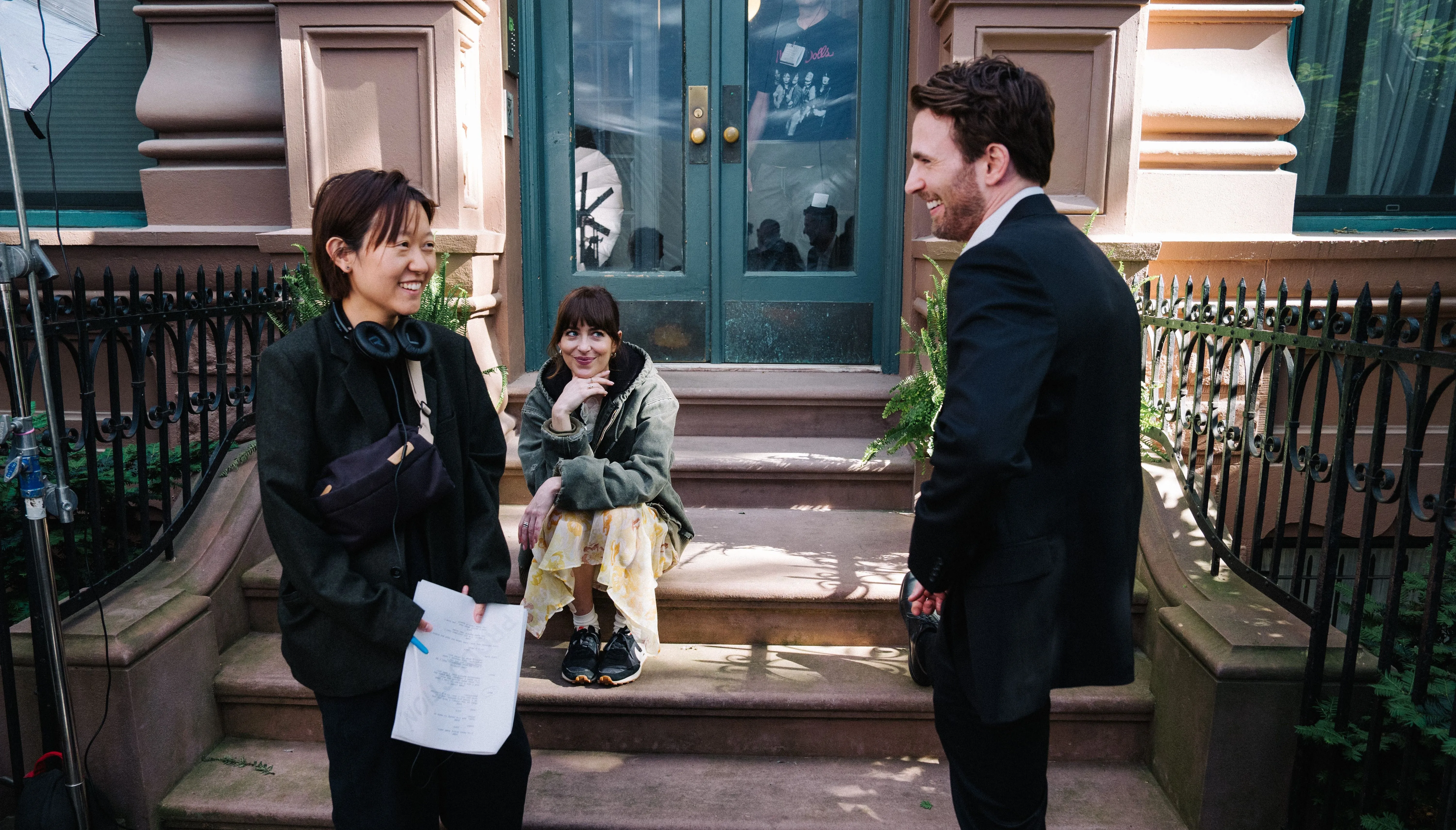
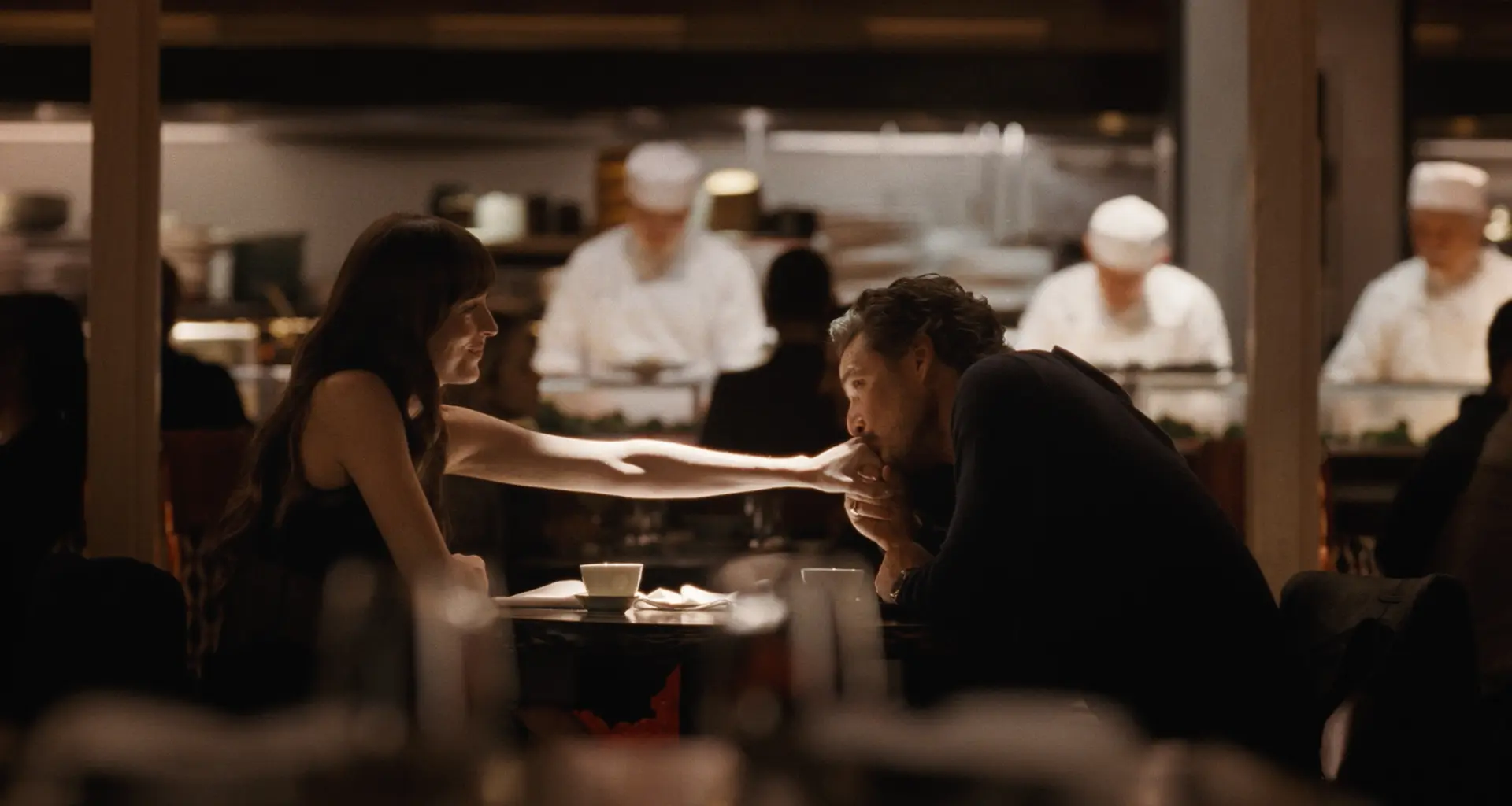
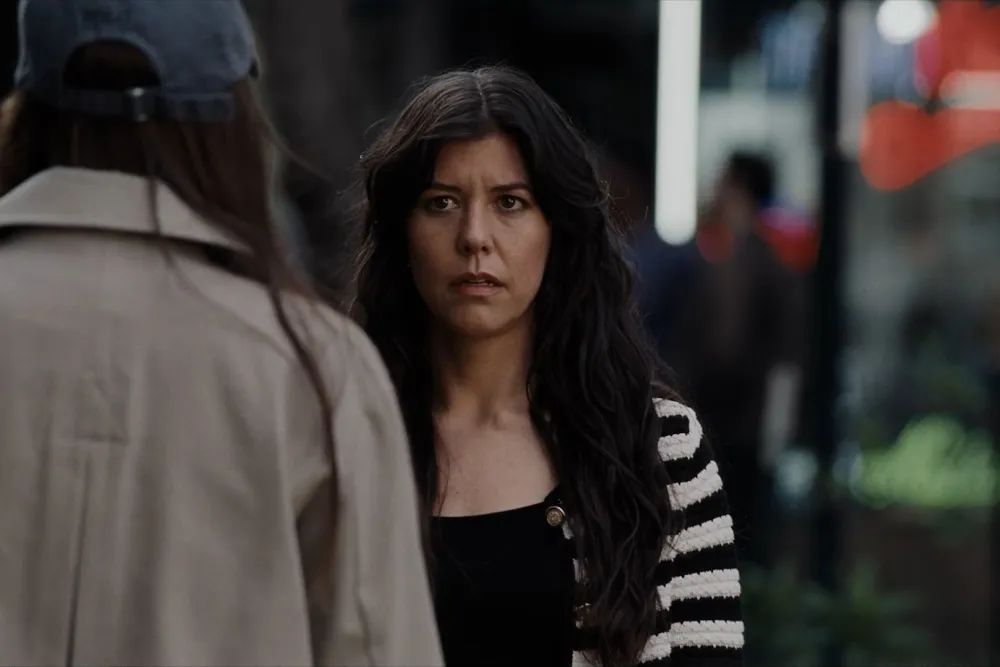
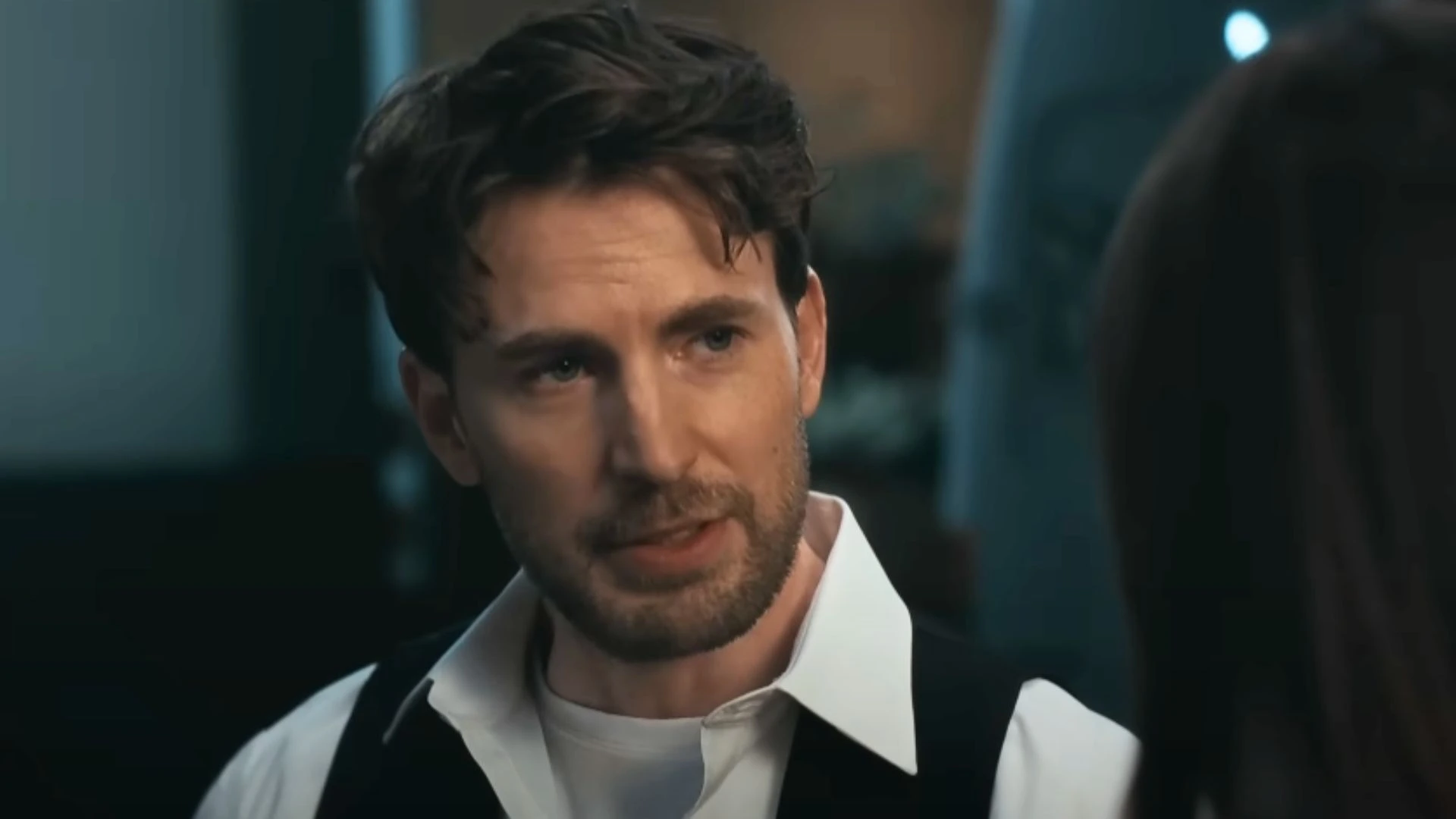










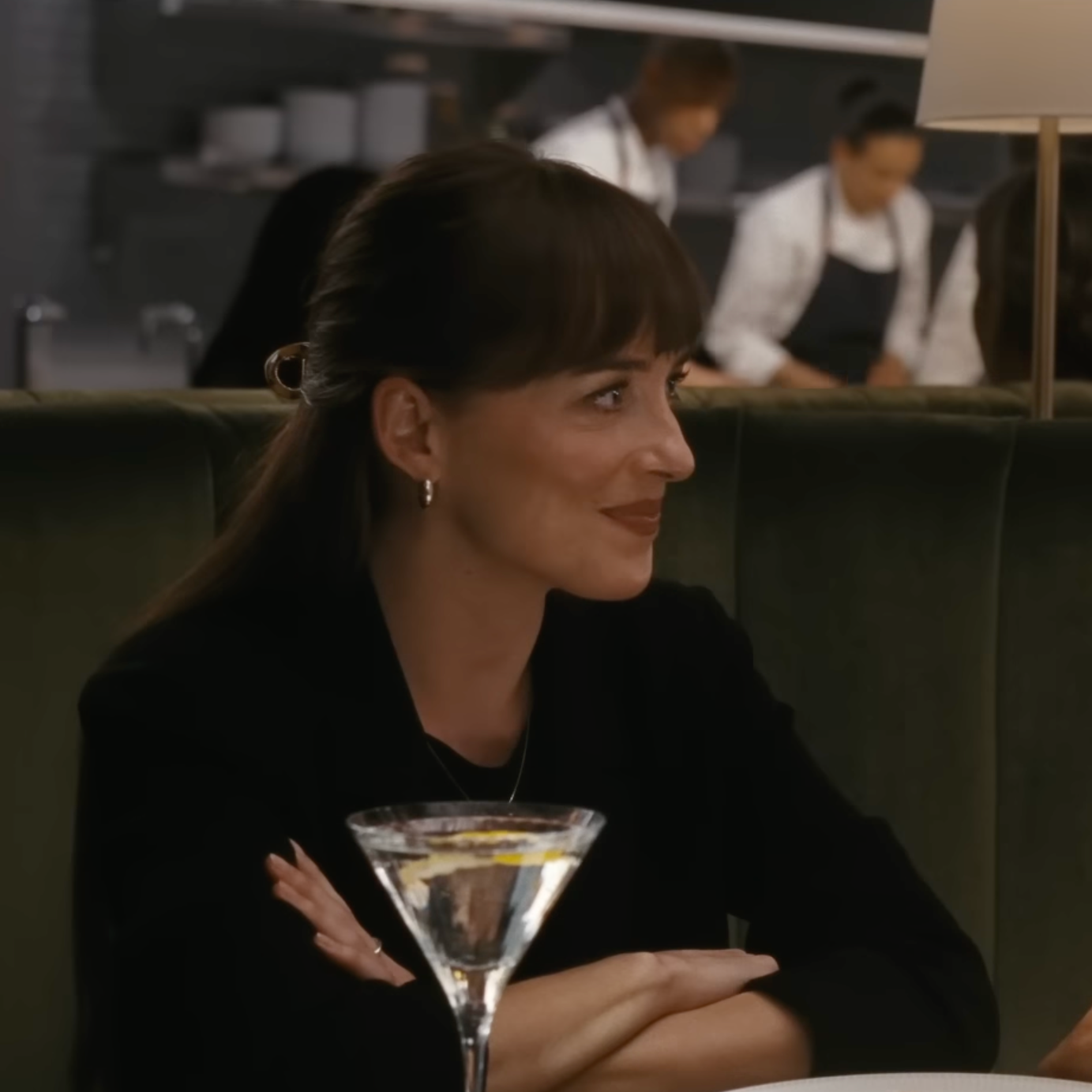





Comments